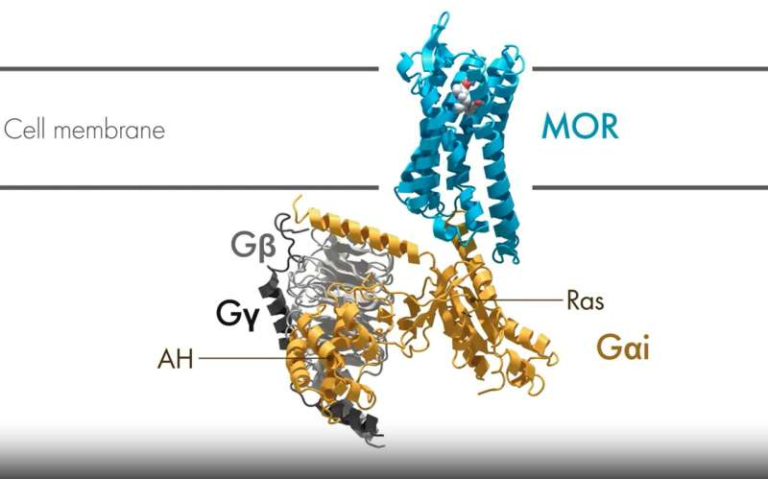Chimpanzees Show They Can Think Rationally and Revise Their Beliefs Like Humans

A new study published in the journal Science has found that chimpanzees may be capable of something once believed to be a uniquely human skill — the ability to revise their beliefs based on new evidence. The research, titled Chimpanzees Rationally Revise Their Beliefs, was carried out by a large international team of psychologists and cognitive scientists, offering one of the strongest demonstrations to date that our closest relatives may be more rational than we’ve ever given them credit for.
The Research Team and Study Overview
The project was led by Emily Sanford and Jan Engelmann from the University of California, Berkeley, along with Hanna Schleihauf from Utrecht University. Other contributors included Bill Thompson, Snow Zhang, Joshua Rukundo from the Ngamba Island Chimpanzee Sanctuary in Uganda, Josep Call from the University of St. Andrews, and Esther Herrmann from the University of Portsmouth.
The researchers designed a series of carefully controlled experiments to test whether chimpanzees can do something humans do naturally: change their minds when presented with better information. According to the team, this ability is a key feature of rational thought — something that allows humans to weigh evidence, make predictions, and update conclusions when circumstances change.
How the Experiment Worked
The study was conducted at the Ngamba Island Chimpanzee Sanctuary, home to dozens of rescued chimpanzees. The researchers set up an experimental game involving two boxes, one containing food and one empty. The chimps were first given a clue about which box held the reward — such as a sound, a movement, or a quick glimpse. Later, they were presented with new evidence, sometimes suggesting the other box contained the food instead.
The real test was whether the chimpanzees would revise their choice in light of the new clue.
To avoid simple explanations — like chimps just picking whichever clue they saw last — the researchers used computational models to analyze the results. They compared the chimps’ behavior to different reasoning strategies, including ones based on recency or simple reaction to stronger stimuli. The results aligned most closely with a rational model of belief revision — meaning the chimpanzees weren’t acting on impulse but were weighing the strength of evidence before making their final decision.
What the Chimps Actually Did
When the new evidence was stronger than the initial clue, chimpanzees switched their choice much more often. When it was weaker, they typically stuck with their first decision. This pattern mirrors how humans behave when evaluating information — a sign that the chimps weren’t just guessing but actually evaluating the reliability of each clue.
In one variation, the experiment included three boxes: one with strong evidence, one with weak evidence, and one with no evidence at all. After removing the box with strong evidence, researchers observed that chimps tended to choose the weak-evidence box over the one with no clue. This showed that they recognized degrees of certainty, an essential feature of rational decision-making.
Another experiment introduced what researchers called “defeater” evidence — misleading cues designed to test whether chimps could realize when earlier evidence had been false. Even in this case, the chimps managed to recognize when their first assumption no longer held up, and they revised their belief accordingly.
What the Data Showed
The team then ran statistical models using Bayesian and other computational methods. These models confirmed that the chimpanzees’ behavior fit a rational belief-revision framework rather than a simpler “stimulus-response” pattern. This means the chimps didn’t just chase the latest clue — they appeared to think through the situation, weighing new information against what they already believed.
The findings were robust across multiple experiments and individuals, giving scientists greater confidence that this wasn’t just a coincidence or a quirk of a few unusually clever animals.
Why This Matters
This discovery challenges one of the long-held assumptions in psychology — that rational reasoning is exclusive to humans. The study’s authors suggest that rational thought may exist along a continuum, rather than being an all-or-nothing human trait.
If chimpanzees, who share about 98.8% of our DNA, can rationally weigh evidence, this hints that the roots of human reasoning stretch deep into our evolutionary past. It also suggests that nonhuman primates might possess more advanced cognitive abilities than we typically acknowledge.
Beyond evolutionary biology, the study may have implications for education and artificial intelligence. The researchers point out that understanding how primates — including humans — naturally revise their beliefs could improve how we design learning environments or train AI systems. For example, knowing that both chimps and young children adapt to new evidence could change how teachers introduce conflicting information in classrooms or how AI systems are programmed to adjust their “beliefs” when given new data.
What’s Next
The next phase of this research is already underway. The UC Berkeley team is testing similar belief-revision tasks with children aged 2 to 4 years to compare their reasoning patterns with those of the chimpanzees. The goal is to see how early this ability develops in humans — and how similar or different it is from our primate relatives.
Eventually, the scientists plan to expand their work to other primate species, such as bonobos or orangutans, to build a broader picture of how reasoning evolved across different evolutionary branches.
The Bigger Picture: Rational Thought Beyond Humans
Rationality — in scientific terms — refers to the ability to form beliefs based on evidence and update them when that evidence changes. Humans do this every day, from deciding which route to take to work, to changing our opinions based on new facts.
For decades, scientists believed this capacity was tied to human language and culture. But a growing body of evidence suggests that other species may engage in similar, though simpler, forms of reasoning. Studies have already shown that crows, octopuses, and dolphins can plan ahead, solve puzzles, and even demonstrate forms of metacognition — awareness of one’s own knowledge or uncertainty.
The chimpanzee study fits into this expanding view that intelligence in animals may not be as different from human intelligence as we once thought. Rather than seeing humans as a dramatic leap above other species, scientists are beginning to recognize that many cognitive abilities — like reasoning, empathy, and planning — exist on a spectrum shared across the animal kingdom.
Evolutionary and Ethical Implications
If chimpanzees are capable of this kind of reasoning, it strengthens the argument for treating them — and other intelligent animals — with a higher degree of moral consideration. Many ethicists and biologists have long argued that animal intelligence should inform how we design sanctuaries, zoos, and conservation policies.
The study’s lead researchers emphasized that these animals are navigating complex environments with flexible, adaptive strategies, even if they don’t have language or abstract symbols like humans do. Recognizing that could reshape how humans view the rest of the natural world.
The Road Ahead
This research doesn’t mean chimpanzees are identical to humans in thought. Humans possess layers of reasoning involving language, social negotiation, and abstract logic that go far beyond what any nonhuman animal has demonstrated. But the fact that chimps can rationally revise their beliefs shows that the foundations of our reasoning abilities were already present in our evolutionary relatives.
For now, the chimpanzee findings highlight a simple but powerful truth: intelligence isn’t all-or-nothing. Rationality may not belong only to humans — it could be a shared heritage among all primates. And that’s something worth thinking about.
Research Paper: Chimpanzees Rationally Revise Their Beliefs – Science (2025)





